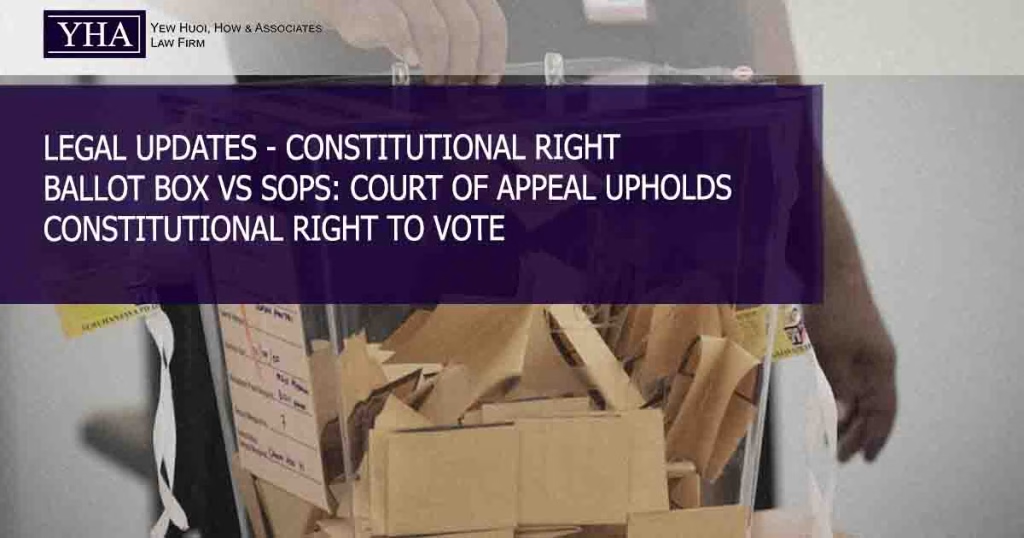1. Summary and Facts
In Tamileswaaran A/L Ravi Kumar v Suruhanjaya Pilihan Raya Malaysia & Anor [2025] MLJU 2371, the appellant, a Malaysian citizen and registered voter, was prevented from voting in the Johor State Elections in March 2022 after testing positive for COVID-19. Acting under SOPs issued pursuant to the Prevention and Control of Infectious Diseases Act 1988, the Election Commission barred COVID-positive individuals from entering polling centres. The appellant sought judicial review, claiming breach of his constitutional right to vote under Article 119 of the Federal Constitution and seeking, among others, damages.
2. Legal Issues
• Whether the Election Commission’s decision to bar the appellant was amenable to judicial review.
• Whether the SOPs and subsidiary legislation could lawfully restrict the appellant’s right to vote.
• Whether the right to vote is a constitutional or statutory right.
• Whether constitutional damages may be awarded for breach of the right to vote.
3. Court’s Findings
• The Court of Appeal held that the decision was reviewable, as it directly and adversely affected the appellant’s constitutional right to vote.
• SOPs and regulations are subsidiary legislation and cannot override Article 119 FC. Only an Act of Parliament may impose lawful restrictions. The Election Commission’s reliance on SOPs to bar voting was unconstitutional.
• The Court reaffirmed that the right to vote is a constitutional right, not a mere statutory entitlement, and is fundamental to Malaysia’s democratic framework.
• While there was a breach, the Court declined to award damages. The Election Commission acted in good faith, guided by public health concerns during the pandemic, and without mala fides.
4. Practical Implications
This decision affirms several important legal principles governing the constitutional right of the election voter including:
• The SOP governs during MCO is subsidiary legislation, therefore cannot be concluded as federal law or act of parliament.
• The right of voting is constitutionally protected provided the requirements under article 119 of FC is fulfilled.
• The commission’s denial appellant to vote is deemed amenable judicial review on order 53 rule 2(4) due to its adverse affected on the appellant’s constitutional right.
• The court has discretionary power to grant monetary compensation.

